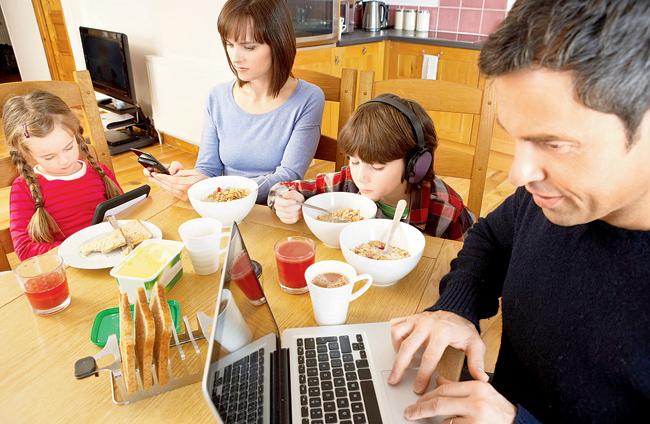Does the thought of losing your phone, set your teeth on edge? Do you suddenly snap at your partner if he/she tells you to switch off your phone in bed? From the train commute to the dinner table, smartphones have become our new crutch to stay clued and communicate with each other. Is this hampering our basic social interaction skills? the guide finds out

smartphones
What is Nomophobia?
"There are many types of addiction: alcohol, cigarettes, and now, the Internet and smartphones," says Dr Nilufer Mistry, senior counsellor at Dr YA Matcheswalla's Happy Minds. Dr Mistry admits that an addiction to smartphones and the Internet is not commonly accepted, at present. She shares that smartphone addiction can be attributed to playing games and social networking — activities that are most visible in students.
ADVERTISEMENT

Weaknesses of an addict
>> Generally, people who have psychological and emotional characteristics such as depression, loneliness, social anxiety, impulsivity and distraction can easily get addicted to the Internet.
>> Smartphone addiction rakes up physical and psychological problems. Physical symptoms such as dry eyes, Carpal Tunnel Syndrome, repetitive motion injuries to wrists, neck, back and shoulders, migraine headaches and numbness and pain in the thumb and the index and middle fingers are some of the problems they face.
>> Adolescents with poor academic achievements (who usually receive less respect from surrounding people), displaying behavioural problems such as sleep disorders, aggressive or depressive symptoms, dropping out of school,
anti-social personality disorder and alcohol abuse are susceptible to such an addiction.
>> Many suffer from anxiety if they lose their phone, even if only for a few minutes.

Do you have any of these signs?
>> Feeling anxious whenever you do not have your phone in your possession.
>> Constantly checking the phone for new texts, coupled with a compulsion to respond immediately.
>> Do you have any idea what the person in front of you is talking about? If not, its probably because you keep checking your Facebook page, tweets and texts.
>> Failing in school. Poor grades can often be blamed on using smartphone in class.
>> Running to the store for 30 minutes and halfway there, you realise you forgot your phone and you must turn around to get it.
>> If checking and re-checking your phone comes as naturally to you as breathing, or if you feel anxious or restless any time your phone is not on or near you, you may have a technology addiction.

No more phobiaz Recognising you have a problem is the first step to recovery!
>> Step out of the office for some fresh air without a phone.
>> Instead of responding via email, go over and tell the message face-to-face.
>> Take 10 deep breaths, and don't think about the phone all the time.
>> Vacation is your time off from work. You need to rest so that you can return to work rejuvenated.
Information courtesy: Dr Anjali Chhabria, Dr Nilufer Mistry

(From left)Dr Anjali Chhabria and Dr Nilufer Mistry
Disrespect for others
"There is a lack of respect for people around. Even while others are talking we continue doing what we are doing. Also, this preoccupation makes a person more self-oriented making an individual more rude and aggressive towards others," observes psychologist Dr Anjali Chhabria, Mindtemple.

A different kind of pillow talk
Dr Chhabria states, "Today, smartphones and television have become the biggest cause of a lack of intimacy between couples. They prefer to be on their respective phones, tablets, iPads or watch television shows after a hard day, rather than actually spending time with their partner."

Isolation
While we feel the virtual world helps us connect to the latest trends, it is actually taking us away from everyone around us. Wherever you are: in the train, in a restaurant, a shopping mall, or at gatherings, most people are on their phones.

Phones at the dining table
Families having no exclusive time together: A common scenario in most houses is that all the members are sitting together but without any communication.

"Everyone is sitting together in the living room but just physically. Mentally, each one is doing their own thing, like watching television or messaging or on a call or playing games," explains Chhabria.
 Subscribe today by clicking the link and stay updated with the latest news!" Click here!
Subscribe today by clicking the link and stay updated with the latest news!" Click here!






